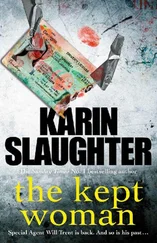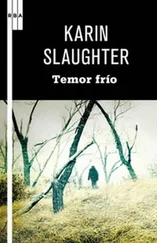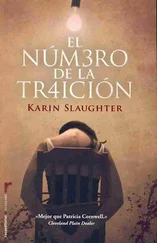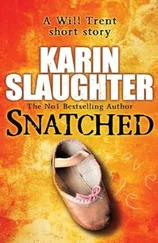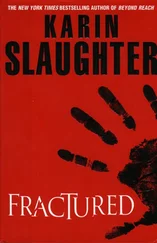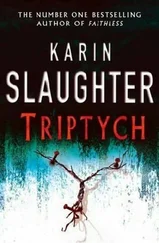Her placid smile was more off-putting than anything Lena had experienced today. She tried to work with it, asking, “What sort of things does Abby do on the farm?”
“She’s even better with numbers than I am,” Esther said proudly. “She worked in the office for a while, but she started to get bored, so we all agreed she could start working as a sorter. It’s not a highly difficult job, but it brings her into contact with a lot of people. She likes being in a crowd, blending in. I suppose every young girl feels that.”
Lena waited a beat, wondering why the woman had yet to ask about her daughter. Either Esther was in denial or she knew exactly where Abby was. “Did Abby know about the thefts?”
“Not many people did,” Esther said. “Lev likes to let the church handle church problems.”
“The church?” Lena asked, as if she hadn’t already figured this out.
“Oh, I’m sorry,” she said, and Lena wondered why she started just about every sentence with an apology. “The Church for the Greater Good. I always just assume everyone knows what we’re about.”
“And what are you about?”
Lena obviously wasn’t doing a good job of hiding her cynicism, but Esther still patiently explained, “Holy Grown subsidizes our outreach into Atlanta.”
“What kind of outreach?”
“We try to carry on Jesus’s work with the poor. We have contacts at several shelters for the homeless and abused women. Some halfway houses keep us on their speed dial. Sometimes we get men and women who have just gotten out of jail and have nowhere to go. It’s appalling the way our penal system just chews these people up and spits them out.”
“Do you keep any information on them?”
“As much as we can,” Esther said, returning to the lemonade. “We have education facilities where they learn manufacturing. The soy business has changed over the last ten years.”
“It’s in just about everything,” Lena said, thinking it would be unwise to mention that the only reason she knew this was because she lived with a tofu-eating, health-food nut lesbian.
“Yes,” Esther agreed. She took three glasses out of the cabinet.
Lena offered, “I’ll get the ice.” She opened the freezer and saw a huge block of ice instead of the cubes she’d been expecting.
“Just use your hands,” Esther said. “Or I could-”
“I’ve got it,” Lena told her, taking out the block, getting the front of her shirt wet in the process.
“We have an icehouse across the road for cold storage. It seems a shame to waste water here when there’s plenty across the street.” She indicated Lena should set the block in the sink. “We try to preserve as many of our natural resources as we can,” she said, using an ice pick to dislodge some shards. “Papa was the first farmer in the region to use natural irrigation from rainwater. Of course, we have too much land for that now, but we reclaim as much as we can.”
Thinking of Jeffrey’s earlier question about possible sources of cyanide, Lena asked, “What about pesticides?”
“Oh, no,” Esther said, dropping some ice into the glasses. “We don’t use those- never have. We use natural fertilizers. You have no idea what phosphates do to the water table. Oh, no.” She laughed. “Papa made it clear from the start that we would do it the natural way. We’re all a part of this land. We have a responsibility to our neighbors and the people who come to the land after us.”
“That sounds very…” Lena looked for a positive word. “Responsible.”
“Most people think it’s a lot of trouble for nothing,” Esther said. “It’s a difficult situation to be in. Do we poison the environment and make more money that we can use to help the needy, or do we maintain our principles and help fewer people? It’s the sort of question Jesus often raised: help the many or help the few?” She handed Lena one of the glasses. “Does this taste too sweet for you? I’m afraid we don’t normally use much sugar around here.”
Lena took a sip, feeling her jaw clench into a death grip. “It’s a little tart,” she managed, trying to suppress the guttural sound welling in her throat.
“Oh.” Esther took out the sugar again, spooning more into Lena ’s glass. “Now?”
Lena tried again, taking a less generous sip. “Good,” she said.
“Good,” Esther echoed, spooning more into another glass. She left the third alone, and Lena hoped it wasn’t meant for Jeffrey.
“Everyone’s particular, aren’t they?” Esther asked, walking past Lena toward the hall.
Lena followed. “What’s that?”
“About tastes,” she explained. “Abby loves sweets. Once, when she was a baby, she ate almost a full cup of sugar before I realized she had gotten into the cabinet.”
They passed the library, and Lena said, “You have a lot of books.”
“Classics, mostly. Some potboilers and westerns, of course. Ephraim loves crime fiction. I guess he’s attracted to the black and white of it all. The good guys on one side, the bad guys on the other.”
“It’d be nice,” Lena found herself saying.
“Becca loves romances. Show her a book with a long-haired Adonis on the cover and she’ll finish it in two hours.”
“You let her read romances?” Lena asked. She had been thinking these people were the same kind of nutballs who got on the news for banning Harry Potter.
“We let the children read anything they like. That’s the deal for not having a television in the house. Even if they’re reading trash, it’s better than watching it on the tube.”
Lena nodded, though in her mind she wondered what it would be like to live without television. Watching mindless TV was the only thing that had kept her sane the last three years.
“There you are,” Lev said when they entered the room. He took a glass from Esther and handed it to Jeffrey.
“Oh, no,” Esther said, taking it back. “This one’s yours.” She handed the sweeter lemonade to Jeffrey, who, like Ephraim, had stood when they entered the room. “I don’t imagine you like it as tart as Lev does.”
“No, ma’am,” Jeffrey agreed. “Thank you.”
The front door opened and a man who looked like the male version of Esther walked in, his hand at the elbow of an older woman who seemed too fragile to walk by herself.
The man said, “Sorry we’re late.”
Jeffrey moved, taking his lemonade with him, so that the woman could take his chair. Another woman who looked more like Lev entered the house, her reddish-blond hair wound into a bun on the top of her head. To Lena, she looked like the quintessential sturdy farmwoman who could drop a baby in the fields and keep on picking cotton the rest of the day. Hell, the whole family looked strong. The shortest one was Esther, and she had a good six inches on Lena.
“My brother, Paul,” Lev said, indicating the man. “This is Rachel.” The farmwoman nodded her head in greeting. “And Mary.”
From what Esther had said, Mary was younger than Lev, probably in her midforties, but she looked and acted like she was twenty years older. She took her time settling into the chair, as if she was afraid she’d fall and break a hip. She even sounded like an old woman when she said, “You’ll have to excuse me, I haven’t been well,” in a tone that invited pity.
“My father couldn’t join us,” Lev told them, deftly sidestepping his sister. “He’s had a stroke. He doesn’t get out much these days.”
“That’s quite all right,” Jeffrey told him, then addressed the other family members. “I’m Chief Tolliver. This is Detective Adams. Thank you all for coming.”
“Shall we sit?” Rachel suggested, going to the couch. She indicated Esther should sit beside her. Again, Lena felt the division of tasks between the men and women of the family, seating arrangements and kitchen duties on one side, everything else on the other.
Читать дальше

